With a skinny dog, it's all fleas
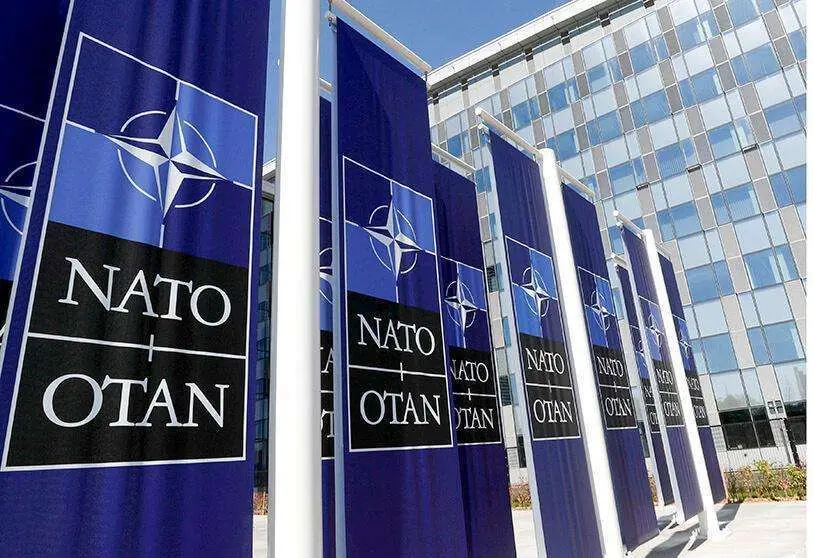
A popular saying or adage intended to indicate a fact - unfortunately quite frequent in all kinds of social, economic and political spheres - which is that misfortunes tend to happen, increase or accumulate with greater gravity in those groups, people, countries or companies that are previously weakened, are very vulnerable or are in a state of despondency.
This is the case of NATO, an Alliance which, under the tutelage and total patronage of the US, emerged after the Second World War to protect and defend Europe from the clutches of communism; which, after the fall of the Iron Curtain, has had to adapt its mission, strategies and areas of action; which, due to various circumstances, has gradually increased the number of its components, until it has become too numerous and very disparate, and therefore difficult and sometimes impossible to manage to bring everyone into agreement, since its decisions are taken unanimously.
The Organisation, where reticence, jealousy, a certain desire for prominence or, on the contrary, a deplorable passivity and the unilateral transfer of responsibilities to the rest of the allies, has survived to the present day with a great deal of willpower and not without major headaches due to the obsessive tenacity of some of its members, such as Turkey, the misgivings derived from Brexit, the diversity of opinions, the constant threats from France, the serious and almost generalised non-compliance with defence spending commitments, its complicated transformations for the adaptation or reduction of command and control structures, as well as its complicated decision-making process.
The Second Gulf War (2003), when the US and the UK decided to invade Iraq with the lure of the existence of Weapons of Mass Destruction, without the backing of the other members and the strong opposition of Germany and above all France, marked the turning point and the first major crack, never closed, in NATO's cohesion in recent decades. Cohesion, which had proved to be ironclad or stony when Bush Jr. invoked Article 5 of the Treaty after the 9/11 attacks (2001).
France, with its peculiar chauvinism and arrogance that always precedes and accompanies its actions and decisions, had already been dragging its heels and threatening to leave the Alliance's military structure, as it did in 1966 with de Gaulle as president, although it remained a member. Forty-three years later, with Sarkozy in the same position, it rejoined the Alliance, while maintaining certain reservations about ceding key elements such as its nuclear deterrence capability.

It is possible that the reasons for this "misunderstanding" lie in two fundamental facts: his interest from the outset in NATO extending its activities to the Mediterranean and the Middle East, and in de Gaulle's enlightening words: "Modifying the form of our alliance without altering its substance", which he used to justify his decision, which stemmed from his unease at France's "subordination" to a "foreign authority".
On the other hand, "France will be stronger and more influential. Why? Because those who are absent are always wrong, because France must co-lead rather than follow. Because we have to be there where decisions and rules are made, rather than waiting to be notified", was the explicit phrase with which Sarkozy announced the reinstatement.
In parallel to this "forced" rejoining of the Alliance, Sarkozy also wanted to recapture the enduring French dream of giving the EU a greater role in Europe's defence. France longed for a renewed and stronger EU, led by them, to become much more involved in external diplomacy, security and defence; a way to increase its protagonism.
This idea was quickly met with clear resistance from Merkel's Germany, which, despite its pacifist nature, being obliged by law at the time, did not want to lose its leading role or get involved in exploits that it considered very costly from the outset, quite difficult to execute efficiently and in which France would undoubtedly try to take control in order to submit Europe to its "command and control" desires and, above all, to force its defence materials on us to the detriment of the many defence industries existing in almost all EU countries.
The insistent and obsessive thinking about NATO's "usefulness" in the eyes of French leaders is pathetic and remarkable; among other things, in November 2019 Macron publicly declared the Alliance to be "brain dead" because of Trump's actions and threats and encouraged Europe to push for its strategic union.
French-led problems in the Alliance have continued to occur with several members, and in July 2020, Paris appealed to NATO following a naval incident, accusing Ankara of attacking one of its frigates during a check on ships suspected of violating the arms embargo on Libya, which Turkey automatically denied.
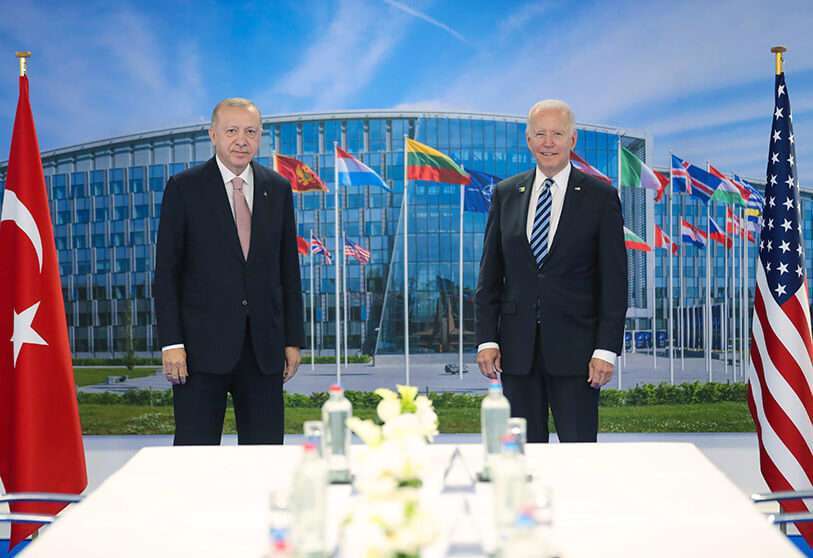
After expressing its displeasure, France demanded "that the allies solemnly reaffirm their adherence and commitment to respecting the arms embargo" in Libya. It also called for a much quicker conflict resolution mechanism than the one in place at the time.
Despite the reluctance, few pros and many cons to the French dream of Europe and its defence, Paris uses any reason, crisis situation or minimal tension to put back on the table the creation of a European military unit, without definition or dimension and independent of the current and unprofitable Euro Corps, based in Strasbourg, which after many years of existence has proven to be a very heavy machine, difficult to move due to lack of means, with many employment restrictions and without a unit of doctrine that makes it efficient and fast for all its members.
Its misgivings and fears have increased even more in the wake of Brexit. Paris has always regarded London as an unreliable ally despite being neighbours and linked by an important umbilical cord. They know that the US "cousins" are always ready to turn their gaze across the pond and follow them in their exploits as has been the norm for many decades. They launched a separate NATO mission together in Afghanistan, invaded Iraq together despite the reluctance of others, and now have just announced an alliance with Australia (AUKUS).
Before the present crisis over the submarines to be sold to Australia, major frictions and, once again, proposals from "warlike Europe" arose as a result of the recent, hasty and shameful failure of the US and NATO mission and withdrawal from Afghanistan. An uncoordinated withdrawal, carried out at the cry of "the last fool", and which, if it had been done as it should have been - there was time after twenty years of hard and bloody fighting - would not have abandoned so many civilians and their families who are now persecuted there for having collaborated with the countries that intervened and, of course, is not to be awarded any medals, as some foolish politician has hastily done.
The sudden and surprising appearance of AUKUS aimed at stopping China in the Pacific and Indian Oceans and its first consequence, the cancellation of a French mega-contract to build diesel-powered submarines for Australia and replace them with American-made atomic submarines, was the trigger for France to feel like a young man whose bride is stolen on the night of his bachelor party.
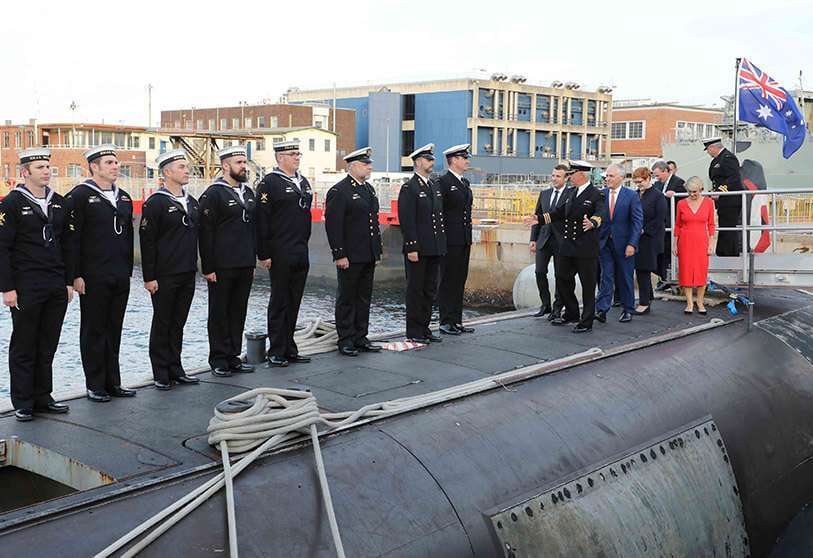
Feeling and claiming that they have been "attacked from behind" - as several of Macron's cabinet ministers define the situation - by the US is nothing more than the exaggerated and absurd reaction of a chauvinistic country that wants to take the reins of Europe after the departure of the UK and the imminent withdrawal of Merkel, which has a large arms industry and must sell its many products any way it can.
The fact that, faced with such a situation, it has called for consultations with its ambassadors in Canberra and Washington, wants to transfer this problem to NATO, endangering its stability and continuity, and is taking advantage of the situation to once again threaten the need to create a European force powerful enough to defend the continent outside NATO, is nothing more than the pranks of a spoilt child or simply a diversionary manoeuvre to try to gain an advantage in the face of the possibility of renegotiating the aforementioned contract or to seek a balance in exchange for such a huge loss during the imminent UN Summit, where the issue will undoubtedly be discussed by the main Western leaders.
As is well known, in the US, despite changes in the doctrines of successive presidents, international policy and national strategy do not usually undergo major changes, unlike in other countries where governments live on revenge and opportunism.
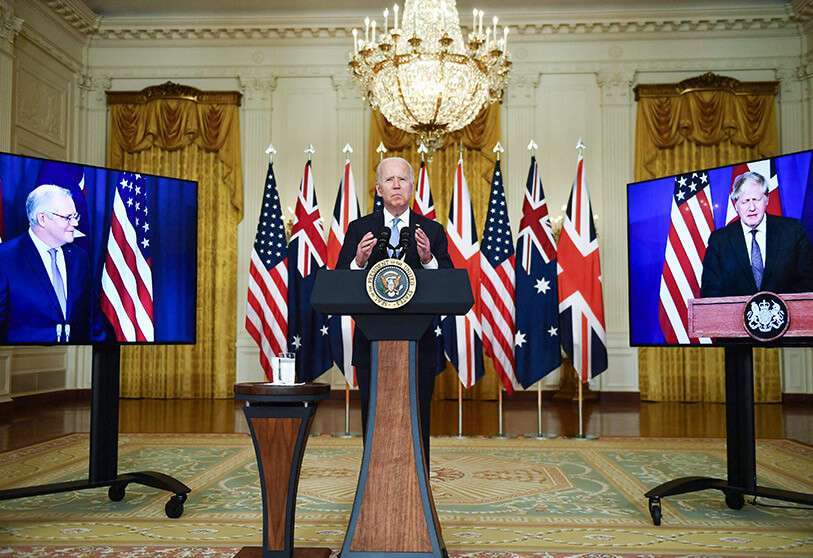
American presidents, with honourable exceptions, maintain the guidelines defined by their predecessors on these issues, knowing that their intelligence and command and control bodies of their important armed forces, despite the mistakes they occasionally make, do not usually embark on the adventure of a radical change in geo-strategy.
For years some of us have been insisting that the US has other, more important interests in its portfolio than NATO and the Middle East. Since Obama's term in office and even a little earlier, we know that they have recently been concerned with other issues such as Arctic dominance, Aerospace Forces and preventing China from taking over world leadership and, above all, eating into their hands in the Pacific and the Indian Ocean.
For them, NATO has taken a back seat, hence their insistence on NATO becoming more self-sufficient and less dependent on US forces and money. The Middle East and its neighbouring areas such as Afghanistan is too big, too conflict-ridden, too full of crazy roosters willing to go to war or wrap themselves in the banner of terrorism and jihadism to achieve their aims and purposes.
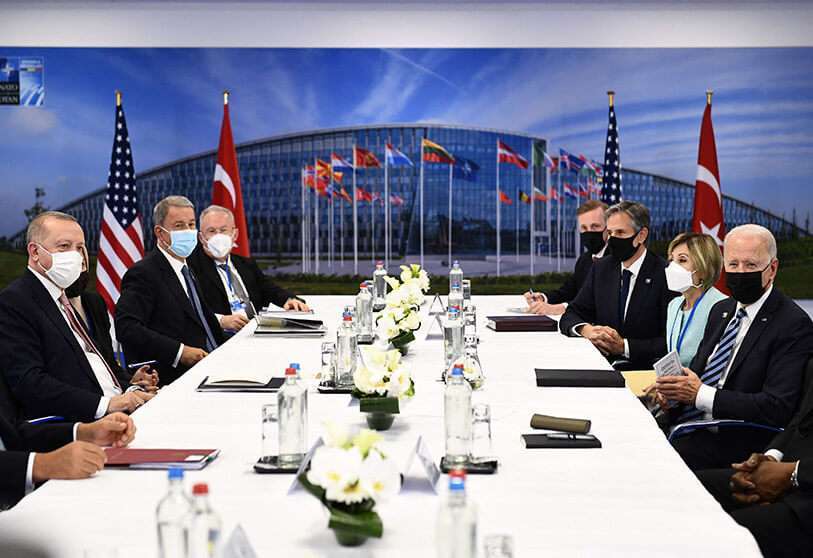
Europe, without the UK on its side, with a NATO capi diminished and constantly bombarded by unattainable French delusions of grandeur, will have to resign itself to being a second-rate guest in a NATO that, necessarily and quite urgently, should reorganise its objectives, mission and areas of interest and influence.
France will continue to spout its self-serving industrial and "Grandeur" or protagonist proposals and the EU, as long as it retains its current High Representative for Foreign Affairs and Security Policy, Borrell -who will go along with any issue as soon as he is shown a green handkerchief instead of a red cape- will continue to speak or semi-support French proposals in the knowledge that they will not find much support in governments that are just starting out, nor in others that have to weather major and deep crises or those that have made it a rule to look the other way and be content with anything, as long as it brings them electoral benefits.
AUKUS will continue its path of formalisation, settlement, aggrandisement, development and engagement; admitting new partners from the zone of interest, although it is quite possible that the NATO experience will teach them a lesson and they will not be so permissive when it comes to accepting new partners. In the meantime, China will see how to counter this "new threat" that has emerged unexpectedly.

